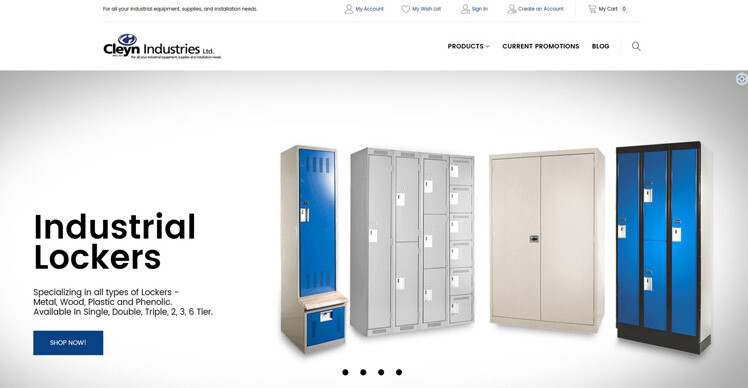What is a DevOps Engineer?
A DevOps Engineer is a professional who is responsible for overseeing the software development lifecycle (SDLC), focusing on improving communication, collaboration, and efficiency between development teams and IT operations teams. The term “DevOps” is a combination of “development” and “operations,” and it reflects the fundamental shift in how software is built, tested, and deployed. Traditionally, development teams were separate from operations teams, which led to bottlenecks, slow delivery cycles, and a lack of communication. The engineer bridges this gap by working on both sides of the fence, ensuring that the entire process runs smoothly and efficiently.
Key Responsibilities
The responsibilities can vary depending on the size and structure of the organization. However, their main duties typically include:
Collaboration and Communication: The DevOps Engineer works as a mediator between development teams and operations teams, ensuring that both groups are aligned with the project goals. They foster a culture of collaboration and shared responsibility for the software lifecycle.
Automation: One of the key principles of DevOps is automation. They automate various stages of the software development pipeline, such as testing, integration, deployment, and monitoring. Automation helps speed up processes, reduce human error, and ensure consistency.
Continuous Integration and Continuous Deployment (CI/CD): DevOps Engineers implement and manage CI/CD pipelines to ensure that new features, fixes, and updates are deployed seamlessly and quickly. They configure and maintain automated build and deployment systems to make the process more efficient.
Monitoring and Performance Optimization: A DevOps Engineer is also responsible for monitoring the performance of the infrastructure and applications. They use various tools to track the health of systems and applications, troubleshoot issues, and optimize performance to ensure uptime and reliability.
Infrastructure as Code (IaC): DevOps Engineers use IaC practices to manage and provision infrastructure using code and automation tools, allowing them to manage environments in a scalable and repeatable manner. IaC ensures consistency and reduces manual configuration errors.
Security: DevOps Engineers play a key role in integrating security into the software development process. This is known as DevSecOps, which focuses on incorporating security practices into the DevOps pipeline from the very beginning.
Key Skills of a DevOps Engineer
To excel in their role, DevOps Engineers must have a diverse skill set that includes technical expertise, problem-solving abilities, and strong communication skills. Below are the key skills required for a successful DevOps Engineer:
1. Proficiency in Scripting and Programming
A DevOps Engineer must be proficient in various scripting languages, such as Python, Bash, Perl, or Ruby. These languages are crucial for automating tasks, writing deployment scripts, and managing infrastructure. Understanding programming fundamentals also helps DevOps Engineers collaborate with developers and automate manual processes.
2. Cloud Computing Expertise
As more companies migrate to cloud-based infrastructures, a DevOps Engineer must be well-versed in cloud platforms like Amazon Web Services (AWS), Microsoft Azure, and Google Cloud Platform (GCP). These platforms offer scalable infrastructure and services that DevOps Engineers can use to deploy and manage applications.
3. Familiarity with Configuration Management Tools
DevOps Engineers use configuration management tools to automate the setup and maintenance of infrastructure. Popular tools include:
Ansible: A simple, agentless automation tool for managing systems.
Chef: A powerful automation platform that allows teams to manage infrastructure as code.
Puppet: A tool used for automating the management of infrastructure and applications.
Terraform: A tool for building, changing, and versioning infrastructure.
These tools help DevOps Engineers ensure that environments are consistent, reducing configuration drift.
4. Continuous Integration and Continuous Delivery (CI/CD) Knowledge
Continuous integration and continuous delivery (CI/CD) are the cornerstones of modern DevOps practices. DevOps Engineers need to know how to build and maintain CI/CD pipelines, ensuring that code is automatically tested, integrated, and deployed with minimal manual intervention. Tools like Jenkins, GitLab CI, and CircleCI are commonly used to implement CI/CD pipelines.
5. Containerization and Orchestration
Containers, such as Docker, allow DevOps Engineers to package applications and their dependencies into a single unit that can run consistently across various environments. Kubernetes is a popular container orchestration tool that automates the deployment, scaling, and management of containerized applications. Understanding containerization and orchestration is essential for DevOps Engineers, as they enable more efficient resource utilization and application deployment.
6. Monitoring and Logging
Monitoring and logging are essential for maintaining the health of applications and infrastructure. DevOps Engineers use tools like Prometheus, Grafana, New Relic, and ELK (Elasticsearch, Logstash, Kibana) Stack to monitor performance, detect issues, and collect logs for analysis. Being proactive in monitoring is essential to ensure the reliability and performance of systems.
7. Collaboration and Communication
Since DevOps Engineers work closely with both development and operations teams, excellent collaboration and communication skills are crucial. They need to facilitate discussions, align teams with the project goals, and help troubleshoot issues effectively. Strong interpersonal skills are necessary for managing cross-functional teams and driving continuous improvement in workflows.
Tools and Technologies Used by DevOps Engineers
A DevOps Engineer relies on a wide range of tools to automate processes, manage infrastructure, monitor performance, and facilitate collaboration. Below are some of the most commonly used tools in DevOps:
1. Version Control Systems (VCS)
Version control is vital in managing changes to code, collaborating with teams, and maintaining code quality. Git is the most widely used version control system, and DevOps Engineers use platforms like GitHub, GitLab, or Bitbucket to host and manage repositories.
2. Build and Automation Tools
DevOps Engineers use automation tools to streamline the build, test, and deployment processes. Popular tools include:
Jenkins: An open-source automation server used for continuous integration and delivery.
Travis CI: A cloud-based CI/CD tool that automatically runs tests and deploys code.
Maven: A build automation tool for Java projects.
Gradle: A build automation system for Java, C++, and other programming languages.
3. Containerization and Orchestration
Containers have become a key technology in modern DevOps workflows. Tools like Docker and Kubernetes allow DevOps Engineers to deploy applications in isolated environments, making them easier to scale and manage. Kubernetes provides container orchestration, automating deployment and scaling processes.
4. Infrastructure as Code (IaC)
Infrastructure as Code (IaC) allows DevOps Engineers to manage and provision infrastructure using code. Popular IaC tools include:
Terraform: A tool for building and managing infrastructure in a consistent and repeatable way.
CloudFormation: A service from AWS that allows you to define and provision infrastructure using templates.
Ansible: A configuration management tool that automates infrastructure deployment and maintenance.
5. Monitoring and Logging
Effective monitoring and logging are essential for ensuring system reliability and performance. Some popular tools used by DevOps Engineers for monitoring and logging include:
Prometheus: An open-source monitoring system used to collect and store time-series data.
Grafana: A data visualization tool that works with Prometheus and other data sources to provide real-time insights.
New Relic: A performance monitoring tool that helps track application health and performance.
ELK Stack: A combination of Elasticsearch, Logstash, and Kibana used for logging, searching, and visualizing log data.
DevOps Engineer vs. Other Roles: Understanding the Differences
The DevOps Engineer role can often be confused with other roles within software development and IT operations. Below is a comparison of a DevOps Engineer with other similar roles:
1. DevOps Engineer vs. Software Engineer
A Software Engineer primarily focuses on the design, development, and implementation of software applications. They write the code that forms the backbone of an application or system. In contrast, a DevOps Engineer focuses on the entire software development lifecycle, ensuring that development and operations teams collaborate efficiently and that software is continuously integrated, tested, and deployed.
While Software Engineers are primarily concerned with writing application code, DevOps Engineers are responsible for automating and optimizing the deployment of that code.
2. DevOps Engineer vs. Systems Administrator
A Systems Administrator is responsible for managing and maintaining the IT infrastructure, including servers, networking, and other hardware. While there is some overlap with DevOps Engineers, who also manage infrastructure, DevOps Engineers are more focused on automation, CI/CD pipelines, and collaboration between development and operations teams.
DevOps Engineers embrace tools and practices that automate infrastructure management and software deployment, whereas Systems Administrators are more hands-on with maintaining and troubleshooting hardware and systems.
The Future of DevOps Engineering
As the technology landscape continues to evolve, the role of the DevOps Engineer will likely become even more integral to the success of organizations. The rise of artificial intelligence (AI), machine learning (ML), and automation will shape how DevOps teams operate, allowing DevOps Engineers to focus on higher-level tasks and make more strategic decisions.
Additionally, the increasing adoption of cloud-native technologies, serverless computing, and microservices architectures will require DevOps Engineers to adapt and learn new tools and practices to manage these complex environments. Security will also play a more significant role, as DevOps Engineers are increasingly expected to integrate security practices into the development and deployment process, embracing the DevSecOps movement.



